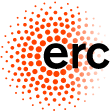Acknowlegements

The Modas project is funded by the European
Research Council under the European
Community’s Seventh Framework Programme
(FP7) / grant MoDaS, agreement n° 291071.
Key data

|
Crowd-based data sourcing is a new and powerful data procurement paradigm that engages Web users to collectively contribute data, analyze information and share opinions. This brings to light,
out of the huge, inconsistent Web ocean, an important body of knowledge that would otherwise not be attainable. Crowd-based data sourcing democratizes data-collection, cutting companies'
and researchers' reliance on stagnant, overused datasets and bears great potential for revolutionizing our information world. Yet, triumph has so far been limited to only a handful of successful
projects such as Wikipedia or IMDb. This comes notably from the difficulty of managing huge volumes of data and users of questionable quality and reliability.
Every single initiative had to battle, almost from scratch, the same non-trivial challenges. The ad hoc solutions, even when successful, are application specific and rarely sharable.
In this project we propose to develop solid scientific foundations for Web-scale data sourcing. We believe that such a principled approach is essential to obtain knowledge of superior quality,
to realize the task more effectively and automatically, be able to reuse solutions, and thereby to accelerate the pace of practical adoption of this new technology that is revolutionizing our
life. Our goal is very ambitious. We will develop the logical, algorithmic, and methodological foundations for the management of large scale crowd-sourced data and for the development of
applications over such information. This encompasses a formal model capturing all the diverse facets of crowd-sourced data. This also means developing the necessary reasoning capabilities for
managing and controlling data sourcing, cleaning, verification, integration, sharing, querying and updating, in a dynamic Web environment. This technological breakthrough will open the way for developing a
new and otherwise unattainable universe of knowledge in a wide range of applications, from scientific fields to social and economical ones.
|
|
 Home
Home 



 Home
Home 


